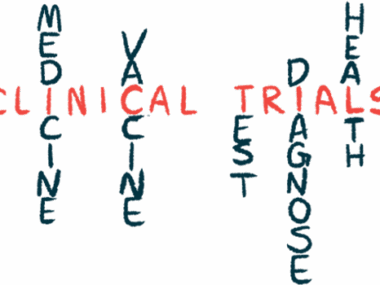2 early-career scientists awarded FSR Research Fellowship grants
$150K grants to fund projects into neurosarcoidosis, pulmonary sarcoidosis
Written by |

Two early-career scientists each were awarded $150,000 Sarcoidosis Research Fellowship grants from the Foundation for Sarcoidosis Research (FSR) to support projects that aim to investigate the causes of sarcoidosis and improve patient outcomes.
The fellowships were awarded to Greer Waldrop, MD, PhD, at the University of California, San Francisco, and Miles Hagner, MD, at the University of Iowa, following the support of an FSR donor that allowed the foundation to extend its funding to two different projects, the nonprofit said in a press release.
“FSR is thrilled to be able to support this innovative research by Dr. Hagner and Dr. Waldrop,” said Mary McGowan, CEO of FSR. “We are eager to gain the insights from this research as we aim to focus on our shared goal to improve the treatments and outcomes for all impacted by sarcoidosis.”
Waldrop’s research focuses on neurosarcoidosis, in which the immune cell clumps called granulomas that are the disease’s hallmark develop in the nervous system. Specifically, Waldrop is investigating its causes. Hagner’s work is targeted to pulmonary sarcoidosis — when the inflammatory disease occurs in the lungs. His goal is to speed diagnosis of the immune system disease.
Research fellowship grant winners aim to improve patient outcomes
While the investigators are targeting different research areas, both have improved patient care as their ultimate goal.
Waldrop’s work involves the study of RNA, a molecule that helps translate genetic information into proteins. The scientist is seeking to uncover the possible causes of neurosarcoidosis — work she hopes will help in the development of personalized treatment strategies for patients.
“I am thrilled for the generous support from the Foundation for Sarcoidosis Research and eager to focus attention on improving clinical and molecular understanding of neurosarcoidosis,” Waldrop said. “I am particularly excited about the opportunity to standardize and validate definitions of disease activity within neurosarcoidosis and the possibilities for more informed pathophysiology (understanding of the disease progress) and targeted therapeutics from my cerebrospinal fluid transcriptomic analyses.”
Of note, the transcriptome is the collection of all RNA molecules in a cell, while the cerebrospinal fluid is the liquid that surrounds the brain and spinal cord.
Receiving the FSR Fellowship Grant to pursue my research project means so much to me! My team and I are so appreciative of the support and can’t wait to continue this exciting research.
Hagner will explore the role of immunological responses mounted by epithelial cells within the airways and how they may contribute to pulmonary sarcoidosis. The aim of Hagner’s research is to identify potential airway biomarkers that may accelerate diagnosis and the potential impact of therapies.
“Having my research project recognized by the Foundation for Sarcoidosis Research feels incredible. I found my “why” when I started caring for and researching people with sarcoidosis,” Hagner said. “Receiving the FSR Fellowship Grant to pursue my research project means so much to me! My team and I are so appreciative of the support and can’t wait to continue this exciting research.”
Launched in 2018, the Sarcoidosis Research Fellowship program was designed to accelerate research, enhance patient care, and ultimately find a cure for sarcoidosis. Since its inception, more than $2 million has been awarded to support early-career scientists as they tackle key questions in sarcoidosis research and patient care.






